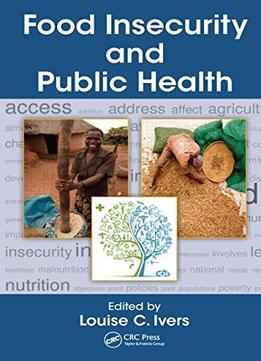
Food Insecurity And Public Health
by Louise Ivers /
2015 / English / PDF
5.2 MB Download
Affecting more than 800 million people, food insecurity is a global problem that runs deeper than hunger and undernutrition. In addition to the obvious impact on physical well-being, food insecurity can result in risky coping strategies, increased expenditures on medical costs or transportation, and mental health issues. A review of the concepts and impacts of food insecurity through the lens of public health, Food Insecurity and Public Health details the complex issue of food insecurity and explores its reach beyond economics and agronomics. The book guides you through the fundamentals, beginning with theory, and the challenges in measuring it, and moving on to the impact of food insecurity on health. The book details the implications of food insecurity on public health practice, including epidemiology and outcomes of diseases such as HIV, TB, and non-communicable diseases, and the specific impact on women’s health. It closes with case studies from the Navajo Nation, Kenya, and Southern Africa, offering the opportunity to learn from real-life successes and challenges. Each chapter also considers programs or interventions that have been used to attempt to address the issue, including a discussion of the US federal food stamps program. In truth, however, there continues to be a dearth of data on the ways in which programs can effectively address the problem of food insecurity at the household, community, or district level in either the short or long term―beyond, of course, the elimination of poverty, which is no doubt a root cause of the problem. The book gives you context for considering the links between food insecurity and health, and a framework for seeking integrated solutions to both problems.











